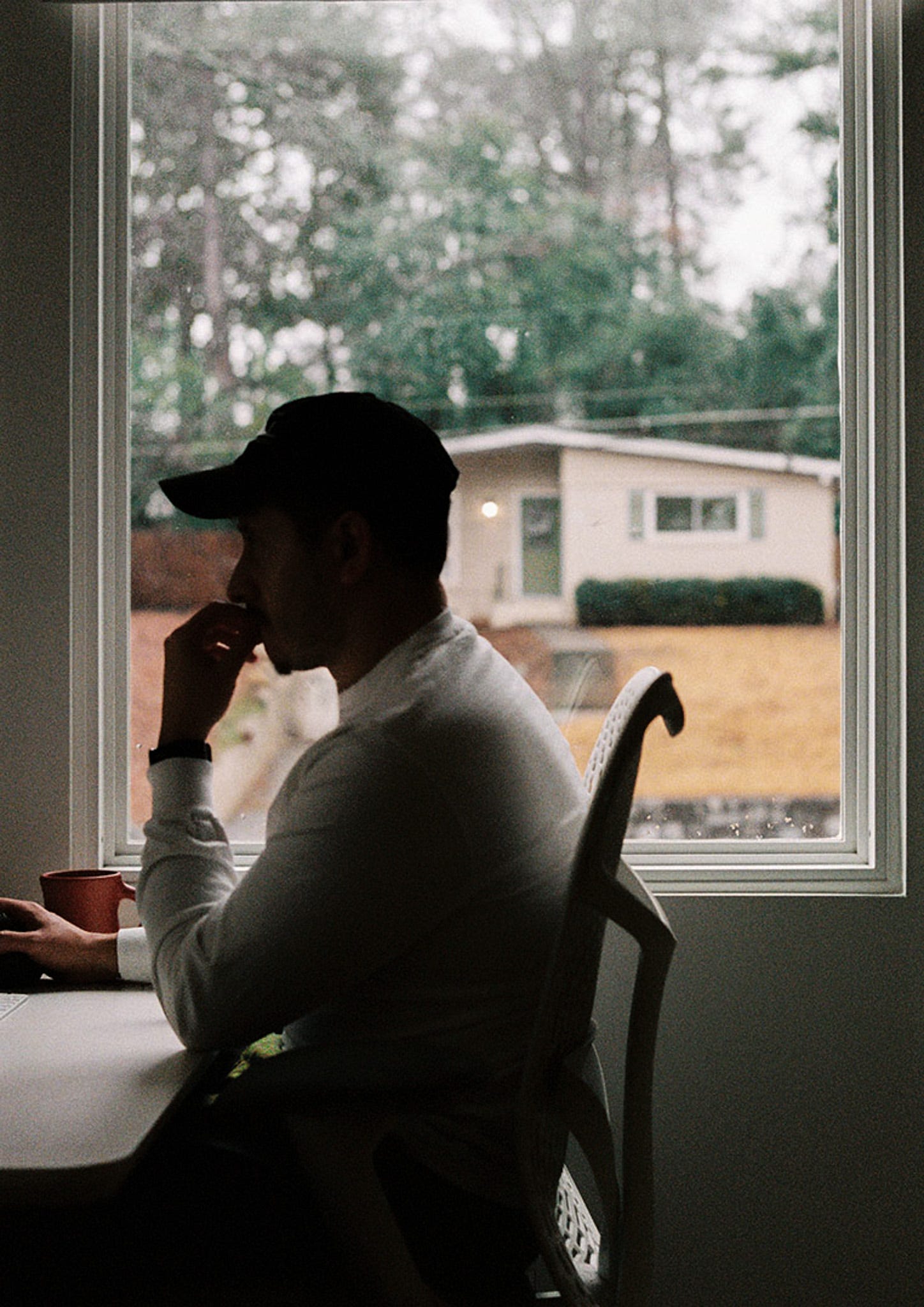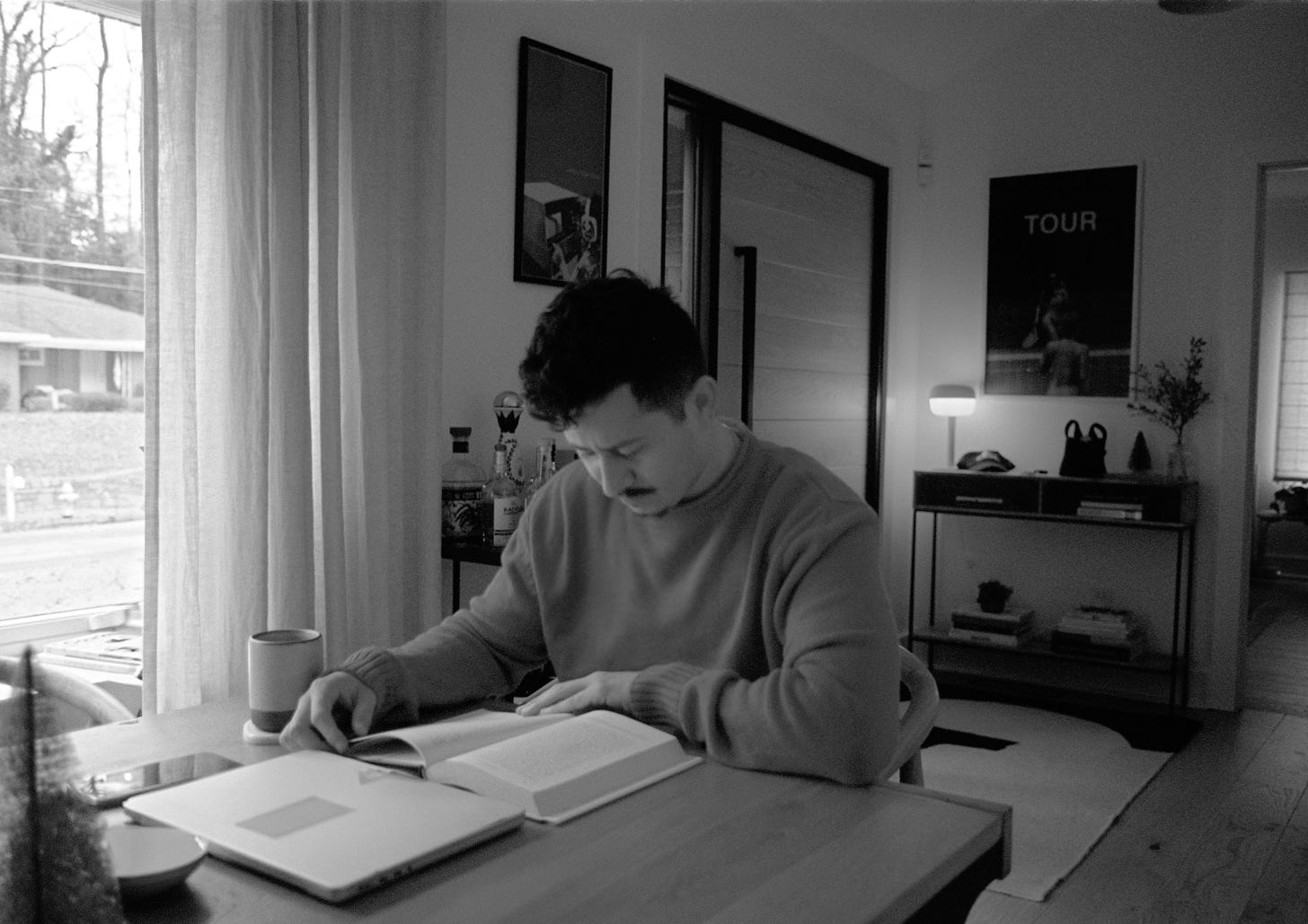We’re 2.5 weeks into 2024 and this month is moving way too fast. Since we last caught up, I spent the holidays with family, incorporated a new company, finished reading Unreasonable Hospitality, began reading Walter Isaacson’s biography on Elon Musk, started a residency at IDEO CoLab Ventures, visited Oaxaca, MX, got back into film photography, and am getting ready to launch Terrace V1.0. More below.
Before I jump into updates, I wanted to take a moment to talk about all the work that goes into getting off the ground (incorporating, setting up payroll, creating emails, buying domains, etc.) A few people have asked me about it recently and for anyone unfamiliar with the process, I’m sure it sounds overwhelming. The good news is that there are so many 3rd party services that make a founders life easier. Here’s the stack I used for Terrace:
For $500 they walk you through the incorporation process (C-Corp, S-corp, LLC, etc.), work with the IRS to assign you an EIN, set aside an employee option pool, help you file your 83b election form, and connect you with a ton of free legal resources.
While you wait on your EIN, their integration with Atlas allows you to pre-fill most of your information and start banking quickly. Customer service was responsive and fast when
After Google sold its domain service to Squarespace I switched to Dreamhost. They have a helpful Webflow integration and work seamlessly with Google Workspace to set up email service.
Payroll, workers’ compensation, insurance, benefits, etc., can all be done with Gusto. There are a few other options out there but we had a great experience working with them while we were building Seasons.
Capital automates the entire fundraising process for any pre-seed / seed round and makes it so much easier to keep track of investors, docs, wire transfers, etc.
All that said, I’ve decided to bootstrap Terrace as far as I can, using as many “low-code” tools as I can. Thankfully, I’m not alone. Last week, I started a residency program with IDEO’s CoLab Ventures. The program is 3 months long, provides a monthly stipend, community, product feedback, and gives me time to develop the idea. Having done this twice before, once with a co-founder, and another solo, I’m incredibly thankful to just have a team of people to brainstorm, edit, and design with.
At the start of every year, I sit down and outline my year 3 months at a time, week by week, focusing on both professional and personal goals. This helps me focus, figure out if I’m on track, and adjust if necessary. For example, the last two weeks of January were focused on sales/marketing for Terrace and finishing our wedding website. I’ve put together a sales CRM of 15+ home inspection companies in the Atlanta metro area and have begun contacting them to discuss affiliate partnerships. I’ve also started working on 4 different static ad formats for Instagram and Twitter/X. The goal here is to drive sign-ups, see whether or not the idea has legs, iterate if necessary, and move on if no one finds it useful, all by spending the least amount of time and money on a single idea as possible.
Something I’ve been thinking a lot about lately is the different mindset I’ve had in bootstrapping a company vs raising venture capital out of the gate. In the former, I worry that I’m thinking too small and getting caught up in short-term revenue. When you raise money for a company that doesn’t have customers, you’re forced to think bigger. There are pros and cons to both. In the context of Terrace, I’ve struggled to find time to design and imagine a long-term vision for the company when I have so many immediate things to do, like getting customers and making money. That said, there’s clearly a balance. While dreaming is important, more VC-backed startups should be thinking about solving a real problem and making money doing so.
My takeaway is to be more intentional with my time, create moments for inspiration, welcome constraints, and allow myself to think broadly. I was recently in Oaxaca for a wedding and I was inspired just by walking around a new city. I thought about a broader vision beyond home services. One of home innovation and automation. What will it look like to discover, buy, own, and maintain a home in the future. A single property ledger filled with historical data and activity. One centered around preventative maintenance, forecasting issues and avoiding them before they come up. It prompted some questions that I’ll be thinking about over the next several weeks:
Whats the transfer of knowledge look like when buying or selling a property?
Which issues require my immediate attention & how much do they cost to fix?
If I’m considering a reno, what project will give me the best ROI?
How much does that project cost? How do I know if I’m getting a fair price?
How do I vet contractors? What questions should I ask them?
What kind of maintenance can I do to avoid major issues in the future?
What’s my overall home condition? How am I doing as a homeowner?
How can insurance companies reward homeowners for being responsible?
More soon. ✌🏼







Maintenance of a particular property calls for a series of routine scheduled tasks. Owners would greatly benefit from a scheduler/notifications system tailored to their specific situation.
Loving the new idea. Keep at it!